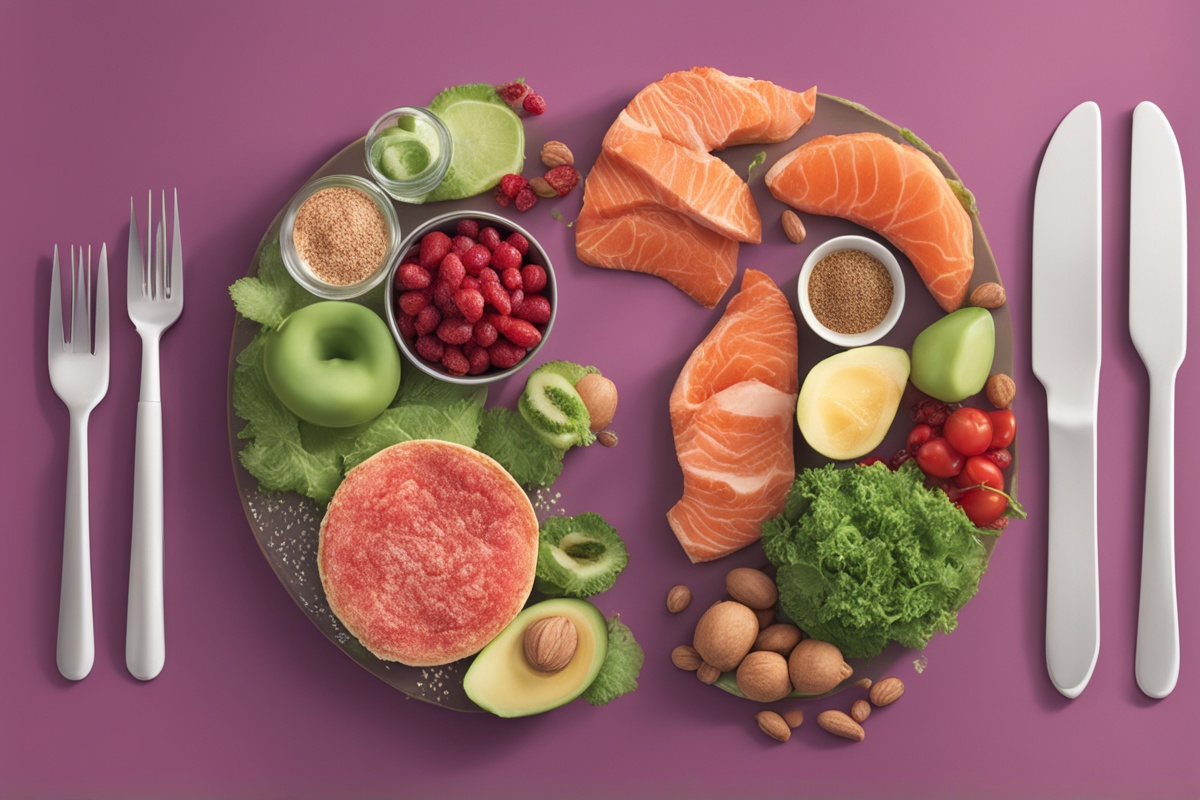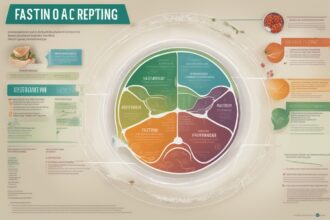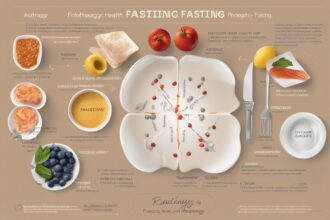In the quest for optimal health and longevity, the concept of cellular renewal has gained significant attention. At the heart of this process lies autophagy, a natural mechanism that allows our cells to clean out damaged components and regenerate. By focusing on boosting cellular renewal naturally, we can harness the power of autophagy to improve overall wellness, fight aging, and prevent chronic diseases. This article explores the science behind autophagy, its role in cellular renewal, and practical ways to enhance this process without relying on synthetic interventions.
What Is Autophagy and Why Does It Matter for Cellular Renewal?
Autophagy, derived from the Greek words “auto” (self) and “phagy” (eating), is a cellular process where cells break down and recycle their own damaged or dysfunctional components. Think of it as a self-cleaning mechanism that keeps cells healthy by removing waste and promoting regeneration. This process is critical for boosting cellular renewal naturally because it helps maintain cellular function, prevents the accumulation of toxic debris, and supports tissue repair.
Research shows that autophagy plays a pivotal role in aging and disease prevention. When autophagy is impaired, cells become cluttered with damaged proteins and organelles, leading to inflammation, oxidative stress, and conditions like Alzheimer’s, cancer, and diabetes. By activating autophagy, we can enhance the body’s ability to renew itself at the cellular level, paving the way for better health and longevity.
The Science Behind Boosting Cellular Renewal Naturally
The process of autophagy is regulated by complex signaling pathways, with the mTOR (mechanistic target of rapamycin) pathway being a key player. When nutrients are abundant, mTOR is active, inhibiting autophagy to promote cell growth. However, during periods of stress or nutrient scarcity—such as fasting—mTOR is suppressed, triggering autophagy to recycle cellular components for energy and repair.
By understanding these mechanisms, we can adopt lifestyle practices that naturally stimulate autophagy. For instance, caloric restriction, intermittent fasting, and certain dietary compounds like polyphenols have been shown to inhibit mTOR and activate autophagy. This natural approach to boosting cellular renewal aligns with the body’s innate processes, avoiding the need for pharmaceutical interventions.
Intermittent Fasting: A Key Strategy for Cellular Renewal
One of the most effective ways of boosting cellular renewal naturally is through intermittent fasting (IF). IF involves cycling between periods of eating and fasting, which creates a metabolic switch that activates autophagy. During fasting, the body depletes glucose stores and shifts to burning fat for energy, a state that upregulates autophagic processes to maintain cellular homeostasis.
Studies suggest that fasting for 16–18 hours can significantly enhance autophagy in various tissues, including the liver, brain, and muscle. To start, try a simple 16:8 fasting schedule—fast for 16 hours and eat within an 8-hour window. For more insights on fasting protocols, check out our detailed guide on Intermittent Fasting for Beginners.
Dietary Choices to Support Autophagy and Cellular Renewal
What you eat plays a crucial role in boosting cellular renewal naturally. Certain foods and compounds can activate autophagy by mimicking the effects of fasting or directly influencing cellular pathways. Here are some dietary strategies to consider:
- Polyphenol-rich foods: Found in green tea, berries, and dark chocolate, polyphenols like resveratrol and epigallocatechin gallate (EGCG) have been shown to stimulate autophagy.
- Ketogenic diet: A high-fat, low-carb diet promotes ketosis, a metabolic state that enhances autophagic activity by reducing insulin levels and mTOR signaling.
- Plant-based nutrients: Compounds like spermidine, found in wheat germ and soybeans, have been linked to increased autophagy and longevity.
Incorporate these foods into your diet to support cellular health. For recipe ideas, explore our post on Ketogenic Meal Plans for Autophagy.
Exercise as a Natural Booster for Cellular Renewal
Physical activity is another powerful tool for boosting cellular renewal naturally. Exercise induces cellular stress, which activates autophagy as a protective mechanism to repair muscle fibers and clear out damaged components. Both aerobic exercise (like running or cycling) and resistance training (like weightlifting) have been shown to upregulate autophagy in skeletal muscle and other tissues.
Aim for at least 150 minutes of moderate-intensity exercise per week, combining cardio and strength training for optimal results. High-Intensity Interval Training (HIIT) is particularly effective at stimulating autophagy due to its intense metabolic demands. Learn more about creating a balanced routine in our article on Exercise Routines for Longevity.
Lifestyle Habits to Enhance Autophagy and Cellular Health
Beyond diet and exercise, other lifestyle factors can support boosting cellular renewal naturally. Sleep, stress management, and environmental factors all influence autophagy. For instance, poor sleep disrupts cellular repair processes, while chronic stress elevates cortisol levels, inhibiting autophagy. Here are some actionable tips:
- Prioritize sleep: Aim for 7–9 hours of quality sleep per night to allow cellular repair processes to occur.
- Manage stress: Practices like meditation, yoga, and deep breathing can lower stress hormones and promote autophagy.
- Avoid toxins: Minimize exposure to environmental pollutants and chemicals that can impair cellular function.
For additional stress-relief techniques, read our guide on Mindfulness Practices for Health. Small changes in daily habits can have a profound impact on your body’s ability to renew itself at the cellular level.
Disclaimer: The information provided in this article is for educational purposes only and is not intended as medical advice. Always consult with a healthcare professional before making significant changes to your diet, exercise routine, or lifestyle, especially if you have pre-existing health conditions or are on medication. Individual results may vary, and the strategies discussed may not be suitable for everyone.
References
- Rubinsztein, D. C., & Marino, G. (2018). Autophagy and Aging. Cell, 146(5), 682–695.
- Levine, B., & Kroemer, G. (2019). Biological Functions of Autophagy Genes: A Disease Perspective. Nature Reviews Molecular Cell Biology, 20(3), 139–151.
- Mattson, M. P., & Arumugam, T. V. (2018). Hallmarks of Brain Aging: Adaptive and Pathological Modification by Metabolic States. Cell Metabolism, 27(6), 1176–1199.
- Mizushima, N., & Komatsu, M. (2011). Autophagy: Renovation of Cells and Tissues. Journal of Clinical Investigation, 121(11), 4071–4078.
- Yang, Z., & Klionsky, D. J. (2019). An Overview of the Molecular Mechanism of Autophagy. Frontiers in Immunology, 10, 2781.
This content is for informational purposes only and not a substitute for professional advice.






